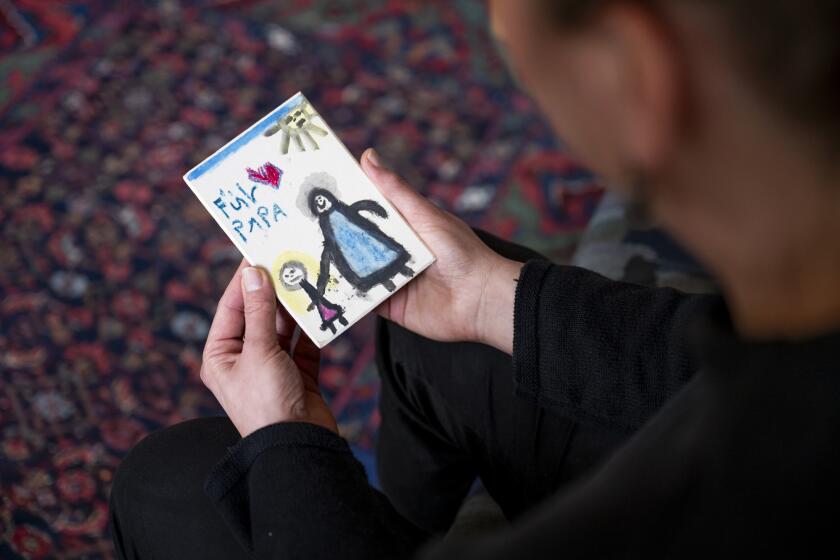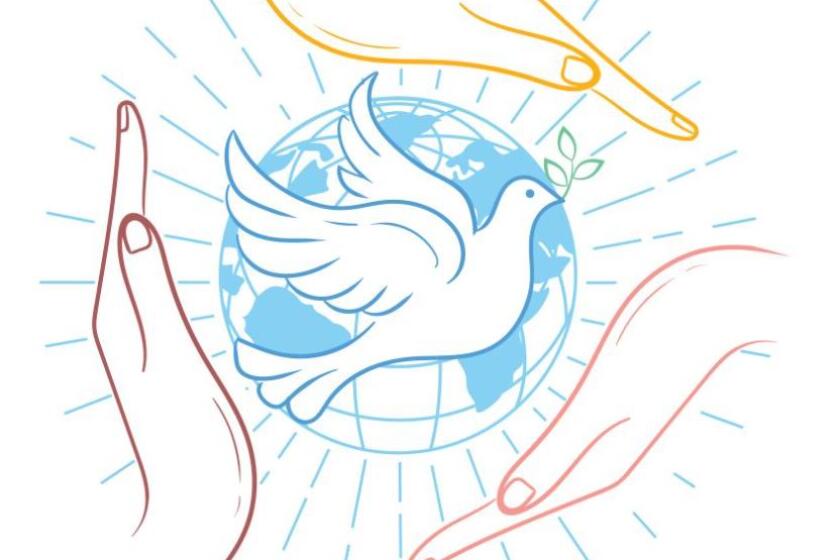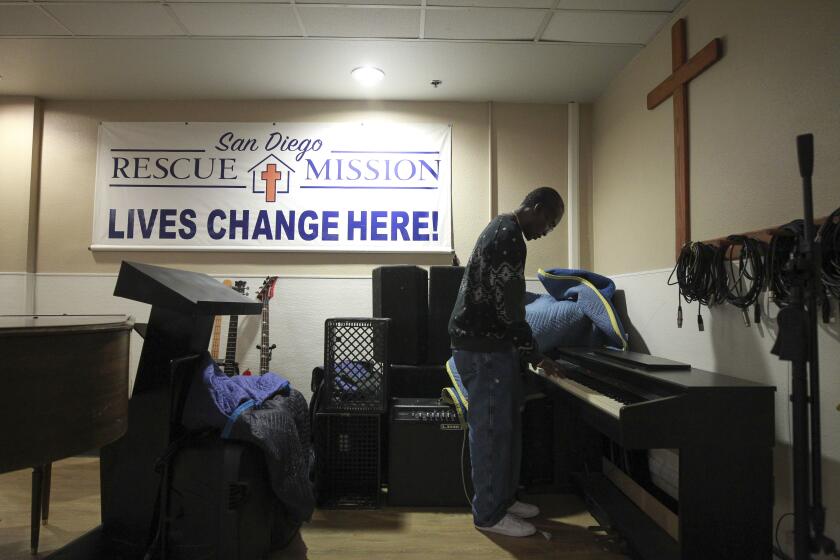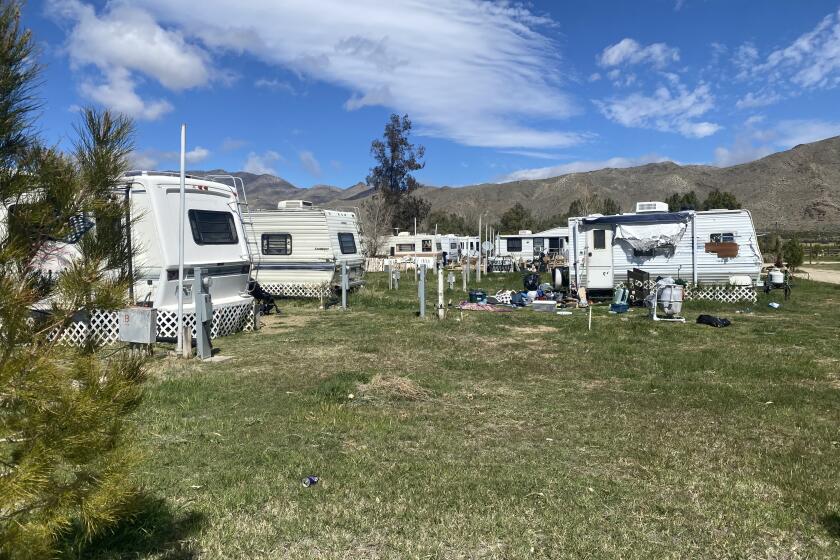Opinion: Normal may be a long way off for about 10 million immunocompromised Americans
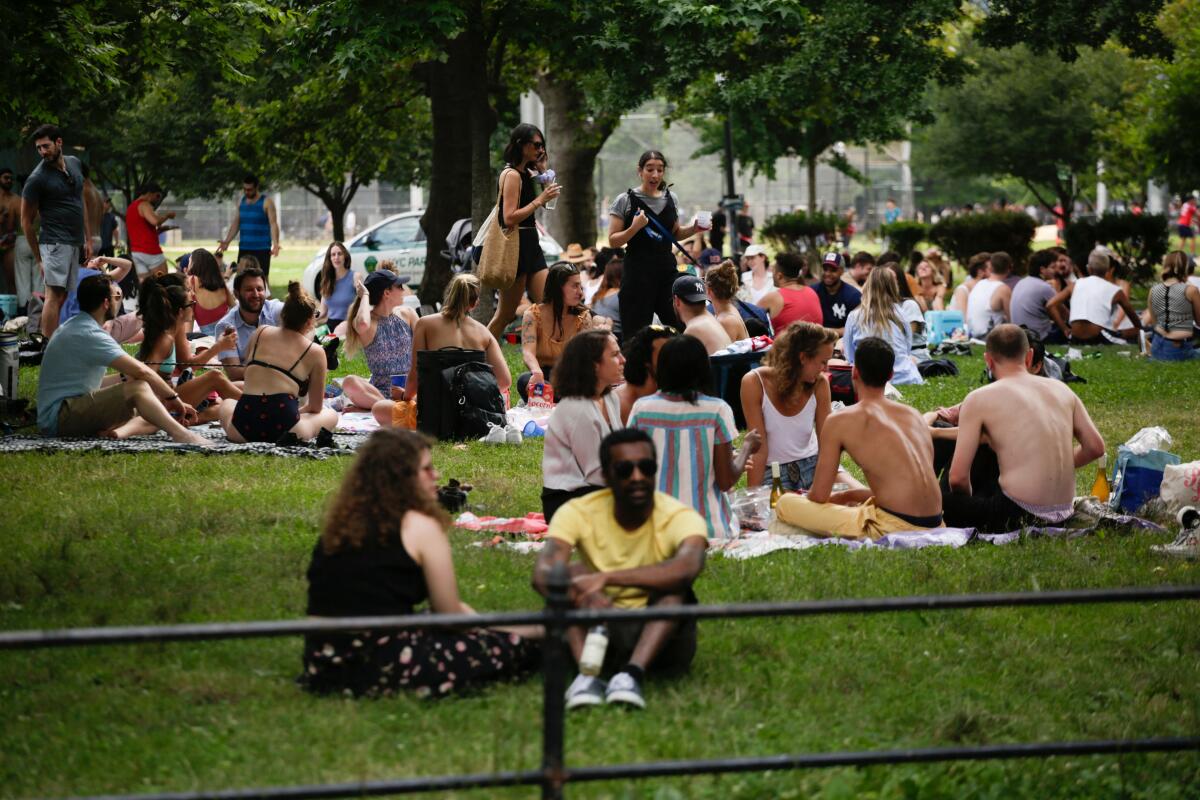
Immunocompromised people are a large and diverse group, yet COVID-19 vaccines were neither designed for nor tested on us.
Polonijo, Ph.D., M.P.H., is an assistant professor of sociology at the University of California, Merced, and a former chancellor’s postdoctoral fellow at the University of California, Riverside School of Medicine. She lives in Madera. Curran, Ph.D., is a provost’s postdoctoral fellow in the Department of Community and Behavioral Health at the University of Iowa College of Public Health and a trainee in the Iowa Leadership Education in Neurodevelopmental and Related Disabilities Program. A UC Riverside alumna, she lives in Iowa City.
Forty-seven percent of Americans are fully vaccinated against COVID-19, and the Centers for Disease Control and Prevention has announced fully vaccinated people can go maskless indoors. In response, states and businesses have lifted masking and other pandemic restrictions, signifying a return to normal. But normal may be a long way off for about 10 million immunocompromised Americans who face unprecedented health risk and uncertainty when it comes to COVID-19 vaccine effectiveness. Emerging studies suggest their bodies are not producing the levels of immunity that they should, leaving many of them vulnerable to infection.
As sociologists and public health researchers who study vaccination, disability and work, we followed the development and rollout of COVID-19 vaccines with great optimism. We were excited to see how rapidly the science progressed. However, as persons with autoimmune disorders being treated with immunosuppressive medications, we did not share the same sense of relief that many others felt after vaccination.
Immunocompromised people are a large and diverse group, yet COVID-19 vaccines were neither designed for nor tested on us. Some of us were born without properly functioning immune systems, others were struck with autoimmune diseases in the primes of our lives, some are organ transplant recipients, and yet others are facing critical illnesses such as cancer or managing infections like HIV. While many of us are fully vaccinated, we do not know whether we have any protection against COVID-19. CDC guidelines outlining what vaccinated people can safely do simply do not apply to us.
For example, even if we are fully vaccinated and keep our masks on, we remain at risk for COVID-19 at work, in school or while visiting grocery stores. This risk is further heightened if others around us shed their masks before they are fully vaccinated. We must continue to refrain from visiting restaurants, places of worship or fitness facilities, which carry great risk. We cannot safely travel to reconnect with the family and friends we have been longing to see over the past 15 months.
Some may assume that immunocompromised people live fragile lives, confined to their homes. This couldn’t be further from reality. We are your grocers, restaurant servers, teachers and health-care providers. Because four out of five private-sector U.S. jobs are in the service sector, many of us, especially those who are financially vulnerable, are unable to work remotely during the pandemic. Often, our conditions are invisible and we do not look sick. We are all around you, however, hidden in plain sight.
As the number of cases of the highly transmissible COVID-19 delta variant grows, our ability to safely work and participate in other essential activities is diminishing. Public health advice that fully vaccinated people are “safe” from the delta and other highly contagious variants ignores the real and grave risks that immunocompromised Americans continue to face. Although we are less likely to be exposed to others infected with COVID-19 than we were a year ago, our chances of catching COVID-19 are now greater if exposed to anyone carrying a highly contagious variant. The World Health Organization now advises fully vaccinated people to continue to wear masks and several countries across the world have reissued mask mandates in the wake of the delta variant. Yet Los Angeles is the only place in the United States to have revisited mask requirements.
Though we look forward to getting back to normal as the pandemic eases, our ability to do so rests, unfortunately, on others in three crucial ways. We rely on otherwise “healthy” people to get vaccinated and not-yet vaccinated people to continue masking. We depend on workplaces and essential service establishments, such as grocery stores, pharmacies and schools, to support policies that facilitate worker and customer vaccination, enable employees to stay home when sick, and require masks rather than rely on an “honor system.”
Furthermore, we need our friends, families and neighbors to advocate for such policies and to encourage those who are not yet vaccinated to consider getting the vaccine. As it currently stands, about 1,000 counties in the United States have a vaccination coverage rate of less than 30 percent. These low rates increase everyone’s — not just immunocompromised people’s — risk of getting COVID-19.
The honor system will not protect us, especially in the face of the delta variant. What will is protecting the most vulnerable among us to help halt the spread of COVID-19, making returning to normal safe for everyone.
Get Weekend Opinion on Sundays and Reader Opinion on Mondays
Editorials, commentary and more delivered Sunday morning, and Reader Reaction on Mondays.
You may occasionally receive promotional content from the San Diego Union-Tribune.
